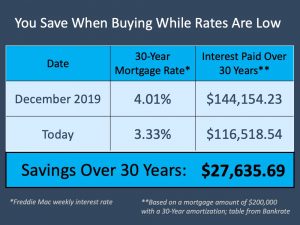Real Estate Investing Advise & Tips
I firmly believe we are all budding entrepreneurs. We want to control our destiny, work for ourselves and feel good about making a difference in the world. Real estate investing is an excellent way to stretch one’s entrepreneurial muscles.
People always ask, “How do I get started?” If you are interested in real estate investing (REI), I’ve laid out three steps to take to start your REI journey.
(If you've made it to this page, then you're definitely on the right track!)
2. Choose a strategy.
Investing in real estate takes many forms — from very passive involvement to very hands-on, rehabbing properties yourself. To get to know the business, you might want to start out investing indirectly and
Start with passive real estate investing.
- Invest in a REIT (real estate investment trust) — You can think of REITs like mutual funds. A REIT is a company that owns and finances real estate properties. You, as an individual, can invest in that REIT and essentially be investing in real estate. This is a great option for someone who only wants portfolio exposure to real estate and is not looking for a side job. Companies we like that sell REITs: Fundrise, RealtyMogul.
- Invest in properties via real estate crowdfunding — What if there was a GREAT property for sale but it was too expensive for you alone to invest in? With crowdfunding platforms, you can invest in real estate by pooling funds and sharing the returns with other investors. Investor Junkie reviews the most popular real estate crowdfunding platforms. Real estate crowdfunding is a passive investment; you won’t have to quit your job and become a landlord, but you can still reap the rewards of real estate investing.
- Active real estate investing — If you want to get your hands dirty in real estate and are not looking for a passive solution, your first step is figuring out exactly how you will invest:
- Wholesaling — Wholesalers find distressed properties with motivated sellers and match them up with investor rehabbers, without ever taking title of the property themselves. Those signs you sometimes see on the side of the road that say “Cash for your house, any condition” are likely placed by a wholesaler.
- Buy rental properties — This is what most people think of when they think of real estate investing: You buy a house, rent it out and collect a paycheck each month. It sounds easy, but finding a property with the perfect mix of location, the right price, higher-than-average rental rates, great tenants to live there, etc., is difficult. And we can’t forget the risks: tenants who won’t pay rent, high taxes, foundation issues, etc. There is really no one who breaks down real estate better than Ms. Paula Pant at Afford Anything.
- Fix and flip — We all know the TV shows… “fix and flip” involves buying a distressed property with the intention to refurbish it and sell it quickly for a profit. You have to buy low and sell high; you need to estimate closing costs, resale value and rehab costs carefully. From there, you’ll need to add your holding costs (insurance, property taxes, utilities, interest on the money if you’re borrowing it) and your cost to sell (typically 8%). There are a lot of things that can go wrong in a fix-and-flip deal, and investors lose their shirts all the time. We are with you every step of the way from purchase to re-sale, and try very hard not to let clients make bad decisions!
Regardless of which strategy you choose, you need to be focused to be successful. Spend a lot of time reading and deciding which strategy is right for you. Because once you dive in, it’s not a good idea to jump to another strategy when things get tough. This is one thing I see real estate investors doing all the time — they don’t commit to a strategy and therefore don’t hone the skills in any strategy enough to be successful. So with that said…
3. Become an expert in your chosen strategy.
In a lot of ways, real estate investing is a trade that you learn (1) by doing and (2) from working with others. That said, that is no excuse for you not to study up and educate yourself as much as possible. Consider the following:
- Watch lots of YouTube videos — What can you NOT learn from YouTube? YouTube has thousands of videos from professionals and amateurs alike, sharing real estate stories and doling out advice. It’s easy to spend entire days watching these videos. Since I do a lot of my own rehabbing at my properties, I rely on YouTube a lot to show me exactly how to remove shower tile or fix a leaky faucet.
- READ! — This is a no-brainer. YouTube and online courses are great, but everyone knows the best way to learn (besides through practice) is by reading. What I would do is spend afternoons just pulling books off the shelf at my local library. I’d sit and browse through them, checking out only the ones that spoke to me. Stay away from “guru” type books promising to make you millions, and you might as well stick to books written in the last seven to eight years to ensure the information is current. A classic book we like is Rich Dad Poor Dadby Robert Kiyosaki. It doesn’t focus on any one strategy, but it certainly touches on the philosophy of real estate investing.
- Research your “mining” area — No matter the strategy you choose — fix and flipper, landlording, wholesaling, etc. — you need to know your “zone.” Each zip code is unique, and within a zip code there might be both bad and good areas. You need to learn ALL about your zip code. What do houses go for? What is the average rent? Are property taxes high there? Are there zoning laws you need to be aware of? Is it competitive? THIS IS WHAT YOUR REALTOR LIVES AND BREATHES!
4. Connect to fast-track your learning.
Once you’ve chosen a strategy and researched all you can, the best next step is to connect with other real estate investors.
- Frequent online forums — I recommend setting alerts for your “mining area” and using the forums to set coffee dates with other investors there.
- Go to local REIA (Real Estate Investor Association) meetings to learn and network — There are REIA meetings all over the country just about every day out of the week. REIA’s mission statement is “to develop, support and promote local real estate investor organizations while serving the interests of the real estate investment industry through networking, education, support, leadership on legislative issues, and promoting professionalism and standards of excellence in our industry.”
-
CALL DAVID TODAY TO GET STARTED! (727) 385-5275





